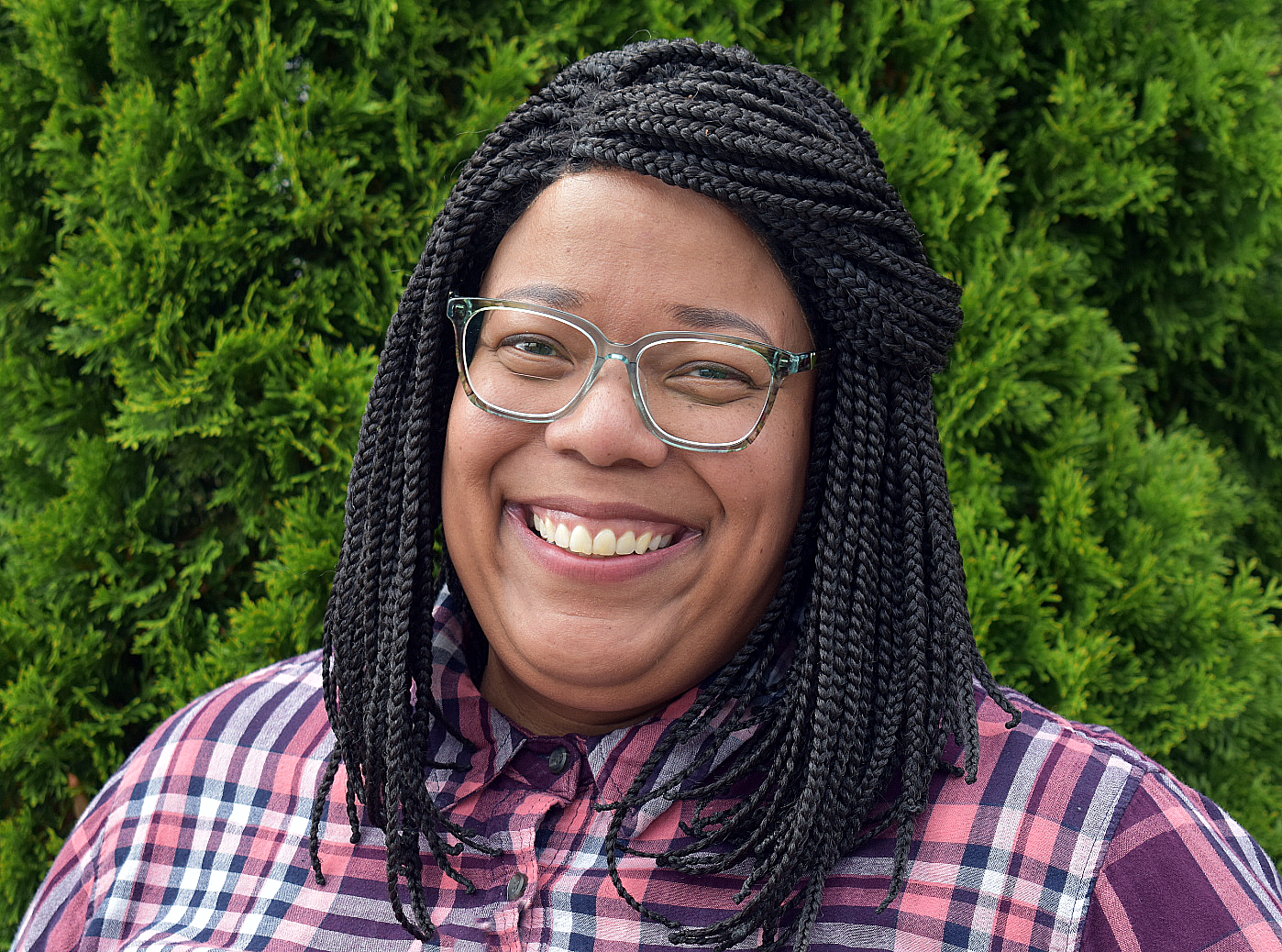Cassie Larrieux is comfortable with data. She can talk about ratios and intervals or qualitative and quantitative information like most people can talk about what was on television last night or who won the big game. But for all that, Larrieux never loses sight of what those numbers truly show — the people whose stories are hidden in the numbers. That’s why she is looking forward to settling into her new role as senior research specialist for Safe & Just Michigan.
In this new role, Larrieux will gather information from a variety of sources — such as the Michigan Department of Corrections — and interpret it to support Safe & Just Michigan’s policy goals.
Doing this is more than a matter of mathematics, she said. Responsible researchers must carefully use the data and avoid misrepresenting it. Just as importantly, she wants to make sure that the data she works with accurately reflects the people it impacts.
“People’s lives are being told by data,” she explained. “It is more than just folks deserving to see themselves reflected in that data that is about them. That is important. But I believe a key factor to implement good policy is an accurate understanding of what the problem is and why it is happening, not what we think the problem is and why we think that problem is happening.”
Born in New York City to immigrants from Haiti, Larrieux gravitated to math and science from an early age. She eschewed the traditional career options encouraged by her immigrant family — such as nurse, doctor, lawyer or engineer — for one where her curiosity for the natural world could be satisfied.
Despite a childhood marked by illness, poverty and domestic violence, she didn’t give up on her plans. She attended Florida A&M University, where she earned a bachelor’s degree in chemistry with a focus on molecular biology. After starting a career at the Florida Department of Environmental Protection after graduation and realizing that career route would not be what she anticipated, she returned to school to obtain a master’s degree in public health.
Upon graduation, she was hired by the Michigan Department of Community Health (now the Michigan Department of Health and Human Services), where she supported the Special Supplemental Nutrition Program for Women, Infants & Children (WIC) and the Pregnancy Risk Assessment Monitoring System (PRAMS).
Larrieux loved the work but was not completely satisfied. She felt she was too far removed from the people her projects served. She left her state job to work with the Ingham County Health Department as a health analyst. In that job she helped develop grants, analyze statistical health data and provided evaluation support to projects the department supported.
“It was exciting,” she said. “You could be looking into youth smoking one day, men’s health the next day, and be involved in a foodborne outbreak the day after that.”
Among the accomplishments she’s most proud of during her 11-year stay at the Ingham County Health Department was helping to create “Healthy! Capital Counties.” Started in 2010, this initiative brought together three local health departments and four hospital systems to conduct a community health assessment in mid-Michigan.
Ready for another challenge, she landed at the Spectrum Health System in Grand Rapids just as the COVID-19 pandemic was getting underway. There, she was tasked with supporting community health needs assessment activities in their hospitals in west Michigan.
Going to work for a criminal justice reform nonprofit that focuses on state-level policy change might not be the most obvious way for a trained epidemiologist to use her research skills to serve people. But Larrieux challenges that notion. She draws several connections between public health and criminal justice reform.
“In public health we, talk about social determinants of health — those non-health factors that influence the opportunities and decisions people make regarding their health and wellbeing,” Larrieux said. “For instance, incarceration is a determinant of health. One way it is tied to health is through employment. For most people, health insurance is tied to your job. Getting a good job, and then having good health insurance, is harder if you have a record.”
The issue is close to her heart, as poverty is something her own family contended with growing up.
“Life is so much harder if you’re poor,” she said. “The problem of the criminalization of poverty really resonates with me. There shouldn’t be two different systems of justice — one if you have money and one if you don’t. My uncle had an addition to the Pledge of Allegiance. The way he saw it, it wasn’t, ’with liberty and justice for all.’ it was, ‘with liberty and justice for all who can afford it’.”
Research and data can be one way to level that playing field, she said. Once people understand the links between poverty, crime and justice, they can better find ways to address those problems.
“I want to change the work for the better. I want to see good and pragmatic policy, based on accurate information,” she said. “I want people to ask harder questions. I want to see people understanding and using data to bring about the changes we need.”

